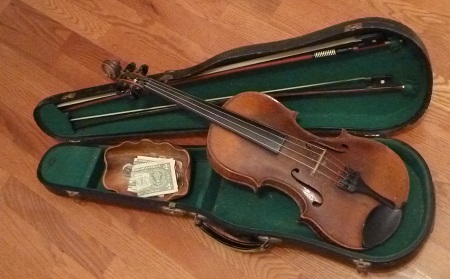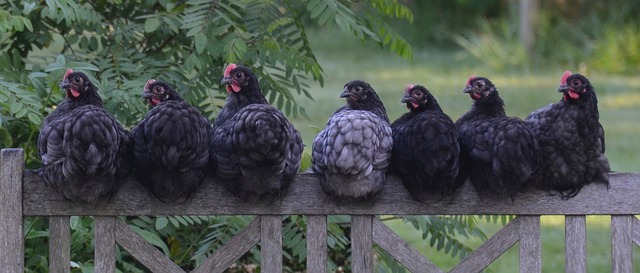Pay the Fiddler
 A friend’s father often said, “The one who dances has to pay the fiddler.” That makes sense. We live with the consequences of the choices we make.
A friend’s father often said, “The one who dances has to pay the fiddler.” That makes sense. We live with the consequences of the choices we make.
To pay the fiddler means we suffer the results of what we say or do.
To pay the piper means the same. We use these expressions most often to describe the results of bad behavior. If we get in trouble, we get punished. Our choices force us to face the music.
The same truth applies to gardening: We reap what we sow.
- Follow the wrong crowd — get in trouble.
- Cheat on tests — fail to learn.
- Hurt other people — lose their trust.
When we choose the right words and actions, we enjoy better results.
- Follow the right examples — learn the best way to live.
- Work as we should — grow in knowledge and abilities.
- Treat others well — build trust in relationships.
Choose well to live well.
As 2020 begins, may we always choose the best. Happy New Year!
“Be sure your sin will find you out” (Numbers 32:23 KJV).
Thanks to Patty Cooper Emerson for the suggestion.
Do you have an expression you want explained? If so, please comment below.
Subscribe to receive my weekly posts by email and receive a free copy of “Words of Hope for Days that Hurt.”
If you enjoyed this post, please share it with your friends.
 A few years ago, my husband was in the hospital, not expected to live. The next day a doctor said he was much better but not out of the woods yet. He meant my husband still had to fight for his life.
A few years ago, my husband was in the hospital, not expected to live. The next day a doctor said he was much better but not out of the woods yet. He meant my husband still had to fight for his life. You made your bed, you must lie in it has nothing to do with making a bed. The expression focuses on behavior.
You made your bed, you must lie in it has nothing to do with making a bed. The expression focuses on behavior. Chickens come home to roost.
Chickens come home to roost. If someone pays us by check, we take it to the bank. The check promises money.
If someone pays us by check, we take it to the bank. The check promises money. Sharp as a razor means very sharp.
Sharp as a razor means very sharp. Many stores open early and close late on sale days. Early shoppers find several choices. Those who shop later in the day find slim pickings.
Many stores open early and close late on sale days. Early shoppers find several choices. Those who shop later in the day find slim pickings.
 If the shoe fits, wear it sounds like a shoe ad. However, we usually mean something much different:
If the shoe fits, wear it sounds like a shoe ad. However, we usually mean something much different: Birds of a feather flock together is true for people as well as birds. A flock (noun) is a group of birds, animals, or people. When birds, animals, or people flock (verb) together, they get together. They form a group.
Birds of a feather flock together is true for people as well as birds. A flock (noun) is a group of birds, animals, or people. When birds, animals, or people flock (verb) together, they get together. They form a group.